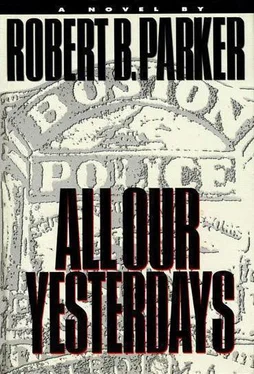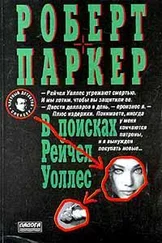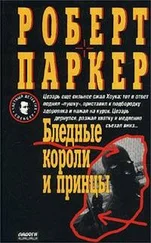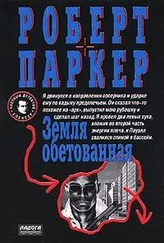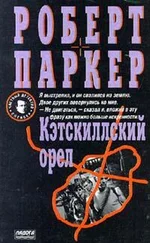Each morning they washed in groups of four from rusty enamel basins. The men around Conn talked with each other as they splashed water on themselves in the numbing cold. The guards’ warning to stop talking was continuous and useless. Only Conn was silent.
Sometimes it would rain and Conn would hear it pelting against the vast walls. It seemed a sound of unimaginable distance, an outside sound in an inside world. The sound of rain would make some of the prisoners weep.
The men scrubbed the flagged floors of their cells, dipping dirty rags in cold water until their hands and wrists were blue.
Most of the prisoners around Conn had killed someone or were thought to have killed someone. The wing was called Murderer’s Wing and the guards were cautious. Just before lights-out an orderly came around and tumbled a slop bucket into Conn’s cell. He wouldn’t be allowed out until morning.
There was neither time nor distance in the jail. Sometimes the walls seemed to shrink in on Conn, and sometimes they expanded airily, as if there were no limit and one could walk forever. He didn’t know how long he’d been there.
A British officer came to his cell, with a narrow-faced Cockney guard. The officer was round faced and pop eyed with high color.
“You’ve one chance, Sheridan,” he said. “You’ll tell us the names of the others, or you’ll hang.”
Conn was sitting against the wall with his knees up and his forearms resting on them. He paid no heed.
“Stand at attention for the officer,” the guard said.
Conn didn’t move. The guard kicked him. Slowly Conn turned his head and stared at the guard.
“You want to die, boy?” the officer said. “Is that it?”
Conn felt a small jag of excitement trill along the ganglia. It was the first thing he’d felt since the blue door closed. He felt himself smile suddenly. He looked up at the officer.
“Captain, dear,” he said, “I don’t give a shit.”
The guard started to kick him again, and the officer put out his hand. He stood staring down at Conn for a moment and then shook his head.
“Fucking Irish,” he said as if to himself, and jerked his head at the guard. The big iron cell door groaned shut behind them and the bolt clanked home.
Conn stayed where he was. His ribs hurt where the guard had kicked him, but he ignored it. He was fascinated instead with the flicker of feeling he’d experienced. It was as if the first hint of regeneration had stirred under the snow. What was it? The prospect of dying? Did he seek it so avidly that its promise brought him hope? He stood and walked to the door and turned and walked back to the wall. It was only a few steps. He leaned on the wall with his palms flat against it and his cheek pressing the chill stone. He felt the roughness of the granite. No, it wasn’t death that thrilled him. It was that it didn’t matter. He didn’t care if he died or didn’t die. Nothing mattered and the thrill he felt was the thrill of freedom. No constraints. No restrictions. If God is dead all things are possible . He rolled along the wall until his back was against it and he said aloud.
“Fuck it.”
And his voice sounded so alien and odd in the cell that he said it again louder and laughed and the laugh echoed even more oddly under the oppression of stone and iron.
“And fuck the English.”
He drummed the flat of both hands in manic counterpoint against the wall.
“And fuck the rebellion.”
A guard appeared at the peephole for a moment.
“And fuck you too, Hadley.”
The guard’s eye disappeared from the peephole and Conn leaned against the wall and flexed his back and bounced against it. And laughed to himself.
“Nuns fret not,” he said aloud. And laughed again, and rubbed his hands softly together. If you didn’t care, then it didn’t matter. Nothing mattered. And fear and need mattered no more than comfort and love. They could kill him but they couldn’t scare him. They could keep him but they couldn’t crush him. It didn’t matter. She didn’t matter. She couldn’t kill him. And perhaps, someday, he might kill her.
“Fuck her,” he said aloud. And then smiled again, and said, “That too, maybe.”
Spring developed slowly outside Kilmainham jail. Inside, as if responding to it, prison discipline began to ease. The guards in Murderer’s Wing who had seen their prisoners filtered through the image of the skulking gunman, began to relax as they saw the men banter with each other, ragging and laughing. The prisoners laughed at the jail rules, much as their keepers did. And an enlisted man’s camaraderie began to develop, which realigned guards and prisoners against their mutual enemy, the officers. The guards left the cell doors unbolted when the officers weren’t around, and the prisoners moved freely about their cellblock.
A short, thick soldier from a Welsh regiment leaned in Conn’s open doorway smoking.
“So you plugged one of the bloody ferrets did you?” he said.
Conn grinned at him.
“Of course not.”
“Did you shoot him outright or did you put a bomb through his window?”
“You must be thinking of someone else,” Conn said. “But if I had done it, I’d have shot him, face to face.”
“Face to face is the way,” the soldier said. “I don’t like the bloody bombing. Seems a coward’s way.”
“You fight a war against a foreign invader,” Conn said. “You do what you have to do.”
The soldier offered him a cigarette, Conn took it, and a light. They smoked in silence for a moment.
“You think we’re invaders?”
“Are you Irish?”
“Of course not.”
“Are you in Ireland?”
The soldier nodded slowly.
“In armed force?”
The soldier grinned.
“Foreign invaders,” he said.
They smoked again in silence. A prisoner who called himself the Old Gunner went by on the way to the jacks.
“Jail regulations do not permit fraternization with the prisoners,” the Old Gunner said in his best impression of an upper-class accent.
“Bugger the jail regulations,” the soldier said.
The Old Gunner continued down the hallway laughing.
“Hard to see why you’re on the outside and I’m on the inside.”
“I was in Belgium,” the soldier said, “slaughtering Huns. If I’d been born in Saxony I’d have been in Belgium slaughtering Tommies.”
He shrugged.
“Handy-dandy,” Conn said. “Which is the justice, which the thief?”
“What the hell does that mean?” the soldier said.
“Shakespeare.”
“You a bloody schoolmaster?”
“I read a lot,” Conn said.
“So how’d they catch you?” the soldier said.
“Somebody turned me in.”
“A traitor?”
“A woman.”
“By God, that’s hard, isn’t it?”
Conn nodded.
“You fucking her?”
Conn grinned.
“Seemed like the right thing to do at the time,” he said.
“Always does at the time, don’t it?”
“Always,” Conn said.
He took a pack of cigarettes from his pocket.
“I’m off duty in ten minutes, you may as well keep these.”
Conn took the cigarettes, and slipped them inside his shirt.
“They’re going to hang you,” the soldier said.
“They’re going to try,” Conn said.
The soldier nodded slowly and kept nodding as he thought about it.
“Sure,” he said. “If they can.”
Conn’s soldier came for him one morning when, outside Kilmainham jail, April had begun to warm.
“They want you in the major’s office.”
Conn stood up.
“You may be in for a knocking around,” the soldier said.
“Doesn’t matter,” Conn said.
Читать дальше
